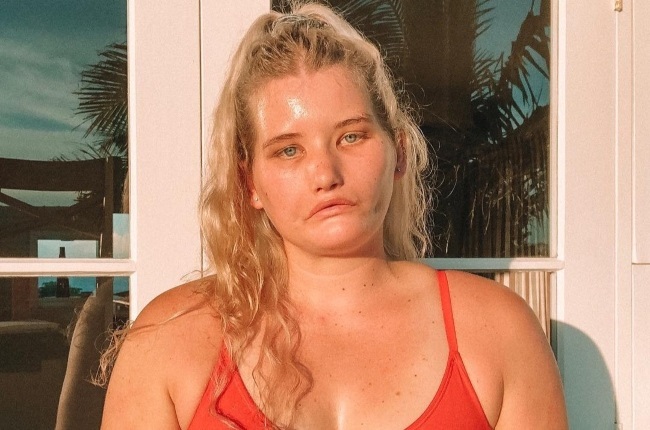
She’s unable to curl the corners of her mouth into a smile, raise her eyebrows in surprise or even move her eyes from side to side.
Despite these challenges, Tayla Clement is the new face of top international modelling agency Zebedee Talent.
The 24-year-old who lives in New Zealand was born with moebius syndrome, a condition characterised by facial paralysis caused by underdeveloped nerves (see below).
Tayla was bullied so badly at school, she attempted to take her own life on several occasions.
“I had such severe depression that doctors told me my mental health was as bad as a solider suffering from post-traumatic stress disorder,” she says.
But that timid and insecure teenager doesn’t exist anymore. Tayla is not just breaking barriers in the modelling industry, she’s also inspired herself with her newfound confidence.
“I think little Tayla would be so proud,” she says.
Growing up, Tayla became accustomed to the taunts thrown her way but the name calling escalated to physical assaults after an operation to repair the damaged nerves in her face was unsuccessful.
During the eight-hour procedure, tissue was removed from her right thigh and added to the corners of her mouth and temples.
But instead of restoring facial movement, the botched surgery left her looking worse than before.
“I looked so horrible that nurses and my parents wouldn’t let me look in the mirror for a week and a half after the surgery,” Tayla, who was 12 at the time of the surgery, recalls.
“I thought the surgery would solve all my issues because I was bullied so much. But it didn’t.”
“People would bring plastic bags to school to put over my head because I was so ugly,” she says, adding that sometimes they would kick her until she fell.
By the time she was 17, the daily abuse by her peers put her under such strain that she developed dissociative seizures, a non-epileptic seizure caused by mental or emotional distress.
Tayla would have up to ten of these episodes of involuntary movements a day, like fainting or uncontrollable eye flutters, over five months.
“I think when you grow up being told you’re different and you’re ugly and you’re worthless you believe it because you don’t know anything else.”
Her life changed when she started working out and practicing meditation. Tayla channelled her confidence into her Instagram account, The Girl Who Can’t Smile, which has more than 25 000 followers.
“I love being able to help others and empower and inspire,” says Tayla, who also has Type 1 diabetes.
“It lights me up so much and if I could smile, you’d see the biggest smile on my face.”
Her bold and bright posts on Instagram recently caught the attention of Zebedee Talent. The international agency represents disabled people, those with visible differences and the LGBTQIA community.
To be openly accepted and celebrated feels amazing, Tayla says.
“I had no one to see in movies or in media and so I felt really worthless because I didn’t see myself anywhere.”
It’s been a long and difficult journey to acceptance but Tayla wouldn’t change a thing. She’s grateful for each step and stumbling block along the way.
“It makes me quite emotional but I’m just so grateful that it was me that went through everything,” she says.
“Because I get to inspire and help people and that makes me happy.”
More on Moebius Syndrome
Moebius syndrome is a rare congenital disorder caused by underdeveloped cranial nerves.
The condition affects the a person’s ability to control their eye movements and facial expressions and in some cases their speech, chewing and swallowing.
In severe cases, those with the disorder are unable to close their eyelids.
The syndrome is not progressive and there is no cure, although treatments can reduce the symptoms. Surgery, like the grafting of nerves from other parts of the body to replace the missing cranial nerves, may help.
Physical, speech or occupational therapy are also treatment options.
The exact cause of the condition, which affects one in every four million people, is unknown.
Sources: dailymail.co.uk, 7news.com.au, abc7.com




 Publications
Publications
 Partners
Partners

















